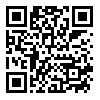BibTeX | RIS | EndNote | Medlars | ProCite | Reference Manager | RefWorks
Send citation to:
URL: http://mi.khu.ac.ir/article-1-23-en.html
The Quranic epistemology is a realistic school. Certainty has two kinds including epistemological and psychological ones. Epistemological certainty is considered certainty philosophically and logically. Psychological certainty, however, is of convincing kind. In the Quran, certainty finally is the result of acquiring true knowledge inclined to hearty calm. So, the Quran has emphasized on both epistemological and psychological certainty. The Quranic certainty is not a simple belief or blind faith without reason. The Quran, also, impresses on extensive, direct and deep influences of human practice on knowledge and certainty. The Quran divides the effect of practices on knowledge into two parts: first, values and acts that have direct and positive effects on human knowledge second, anti-values and acts that have direct and negative effect on human knowledge and certainty. It seems that in the Quran, practical and theoretical dimensions are as two inseparable and ontological dimensions of human which have reciprocal relations, so far as, it is cleared that the effect of human act on his/her certainty and knowledge is more cognitive and theoretical factors. In fact, human knowledge and act are united in an ontological context. In the Quranic view, the pure knowledge can not get certainty since knowledge is not merely a logical and psychological fact but is a stage of human existence.
| Rights and permissions | |
 |
This work is licensed under a Creative Commons Attribution-NonCommercial 4.0 International License. |






